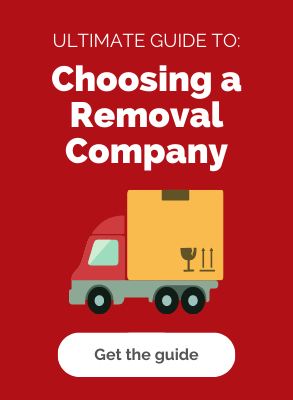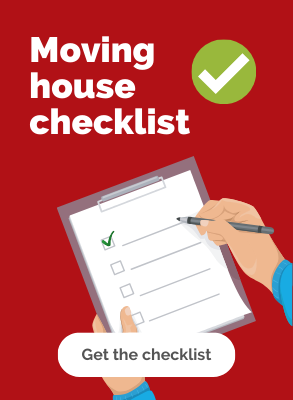Whatever you're reasons for moving house renting is a popular option for those who aren't sure about their long term circumstances - but with so much choice, how do you begin the process of renting a house in the UK?
Finding the right place
Once you’ve narrowed down a few good areas you’d be happy to live in, the search for a property can commence. Ask yourself what’s important to you as a person or family when looking for a home – is security a major must? Do you need a garage or secure area to park your car? Is it essential to have a garden? Will you be on a main route for public transport? Do you have any disabilities which would rule out living on the top floor of a flat? Do you need somewhere fully or part furnished? All of these things should help you eliminate properties that wouldn’t be right and shortlist the ones that are.
Generally, when renting a house in the UK, people tend to use the internet to kickstart their property search – not only is it quicker and more up-to-date, but most property websites will show you a selection of good quality pictures of the interior and exterior, along with detailing all the basic information you need to know.
Make a list of a few you like, call up the relevant agent and arrange for some viewings. Alternatively, you could start with the agent – arrange a meeting with a few and see what they’ve got to offer. They’ll talk you through everything you need to know and be able to arrange viewings for you there and then.
Viewings
When thinking about renting a house in the UK, it's essential to view every property you’re interested in. It can be tempting to skip this part – particularly if you’ve seen pictures online – but never, ever do it. Where a property is concerned, pictures only tell half the story - they might show you a brand new bathroom suite or nicely decorated bedroom, but there could also be a million and one other things that that picture doesn’t show you which could impact massively upon living in that house. Not only that, but viewing the house gives you a chance to check out the surrounding neighbourhood and get a feel for that too.
The agent representing the house will usually arrange for a time to meet you there and show you around. From the minute you turn up, you should be assessing everything – is the front garden kept clean and tidy? Does the front of the house look battered and worn? Are the windows, gutters and roof in good condition? Does the door lock securely when you get inside? And that’s before you’ve even had a look around.
Once you’re inside, apply the same level of scrutiny. Walk around each room in turn, taking your time to check everything out and ask any questions. The biggest things to look out for are:
• Heating and lighting – is everything in working order? Have the gas and electrics been checked recently and does the agent have certificates to prove this?
• Insulation – do the windows shut and lock properly? Are there any drafts coming from doors or windows that could be fixed? This is particularly important as it’s likely you’ll be the one paying to heat the house.
• Similarly, you’ll likely be contributing to some sort of insurance scheme of your own in addition to that of your landlord’s, (the landlord will cover the building, but you will need to arrange cover for your contents) so make sure the house is secure on all levels and there are no access points from alleyways or back gardens that worry you.
• Water – does it work properly? Might sound like an odd thing to check, but you don’t want to move in and spend the first day arranging for a plumber to fix a toilet that won’t flush or taps that leak. Also, make sure the hot tap is just that, and check how your water gets heated.
• Walls – Check for signs of damp or mould on walls and floors. Rotting floorboards can cause a multitude of problems with rising damp that can be harmful to small children. If it’s a relatively new house then this shouldn’t be a concern at all, but older buildings need to have relevant damp proofing in place.
• Fixtures and fittings – find out what the house comes with. What you get as part of the package will vary from landlord to landlord – some will provide beds, sofas and other items of furniture, some will throw in white goods like your fridge, freezer and oven and others will expect you to provide everything for yourself. Where there are white goods or furniture included, check their condition and ask about where the responsibility for a replacement lies if anything is to break or get damaged during the course of your tenancy.
• If you’re moving into a block of flats, check the procedure for post and ask if there’s a secure post box allocated to each tenant. See if there’s a shared communal space and check it out – is it clean and safe? Who assumes responsibility for maintenance? Also, always check the fire safety regulations when viewing flats – incredibly important if you’re near the top!
Other things to consider:
• How close are the transport links if you’ll be using them regularly for commuting to work or getting children to school?
• Is there adequate, secure parking included with the house or somewhere safe you can leave your vehicle nearby?
• Are you within sufficient distance to any local amenities you might need on a regular basis?
• If you have children, what are the local schools like?
• What’s the area like at night time? Is it well lit and safe or would you feel uncomfortable walking home from a train station or bus stop after dark? Is it busy or loud during the day or early in the morning when small children might be sleeping or you might be working from home?
• What are the neighbours like? Talk to existing tenants if possible, or see if you can catch the neighbours and speak to them for yourself.
• What are the policies on pets, smoking and allowing guests into the home?
• Does the house have enough smoke alarms and do they all work?
• Can you meet the landlord? Not always essential if you’re dealing directly with an agent over the course of your tenancy, but it’s recommended you meet them if they are managing the property once you’re in so that you can build a good relationship.
• Where the landlord is providing certain items for your use, ask for an itinerary. If you can, be present when it’s being made and take pictures of things – many of the disputes between landlords and tenants in rental properties come from the condition of items at the end of a contract, so making sure you have documentation of everything is good practice.

.png)








